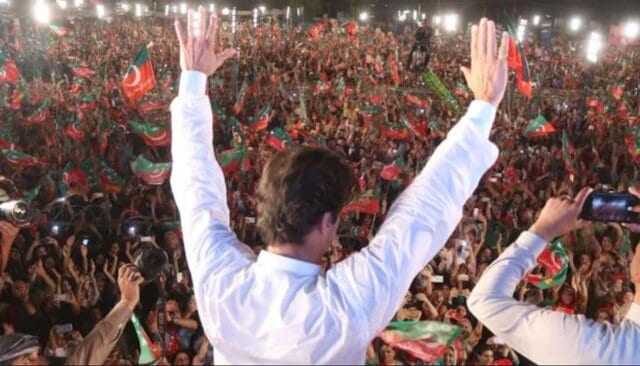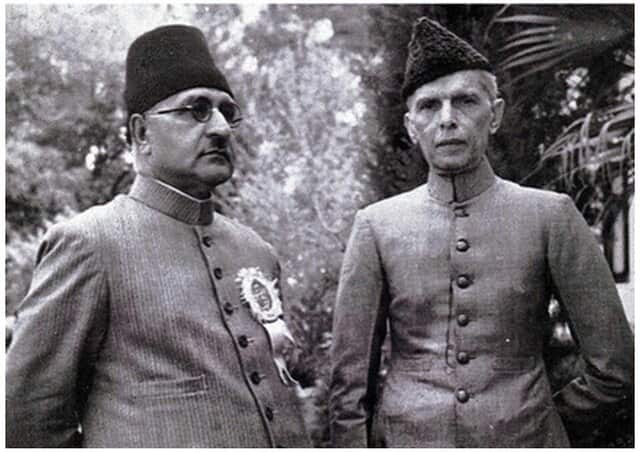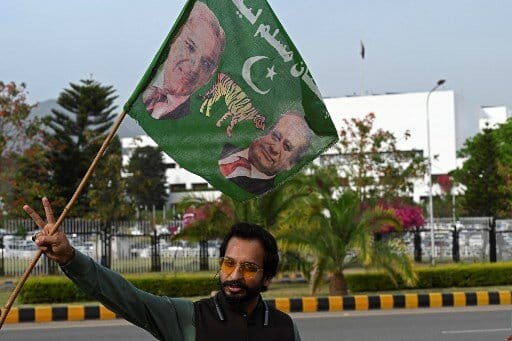On 16 October 1951, Liaquat Ali Khan, the first prime minister of Pakistan, was assassinated while addressing a gathering in Rawalpindi. This incident started a pattern in the country that continues to date: No Prime Minister has been able to complete a full five-year term in office. Two years after his killing, Pakistan witnessed a ‘constitutional coup’ when Governor-General Ghulam Muhammad dismissed an elected government. In 1958, the country saw its first military coup. On 7 October, President Iskander Mirza abrogated the Constitution and declared martial law. Twenty days later, he was deposed by Army chief Ayub Khan. Within 11 years of its creation, Pakistan experienced the kind of upheavals that will become the hallmarks of its political history in the decades to come. Reasons why no PM has been able to finish a full term varied from assassinations to military coups to most recently a no-trust vote that took place on 10 April 2022. The united Opposition led by two veteran parties of Pakistan — the PML-N and the PPP — ousted cricketer-turned-politician Imran Khan from power. With this, Khan became Pakistan’s first PM to lose a no-confidence motion, in a move that was seen as a rare democratic success in a country marred by political instability. But for Khan’s supporters, horse-trading won the day. Several leaders of the former premier’s PTI had switched camps to the Opposition ahead of the motion. The Pakistan Army, which has dominated politics since the beginning, remained largely silent during the whole saga, sparking speculations of a fallout between the military and the government. This, however, was not the case when Khan won the 2018 elections. The Opposition accused him of colluding with the Army, so much so that the polls were dubbed “election by generals”. [caption id=“attachment_10645911” align=“alignnone” width=“640”]  Imran Khan addressing his supporters on 26 July, 2018 after his party PTI emerged as the single largest party in the recently held general elections. Image: Twitter/ImranKhanPTI[/caption] So what happened now? The timing of Khan’s ouster is crucial. He was booted out just a year before he could complete a full-term. While Khan did not directly blame the Army, the differences between the two were out in the open. Imran Khan maintains that he was ousted through a US-backed regime change. His government claimed that Khan’s visit to Russia on the eve of the Ukraine invasion on 24 February had irked Washington. The military took a stand that was contrary to the position taken by Khan. On 2 April 2022, Army chief Qamar Bajwa slammed Moscow saying: “Sadly, the Russian invasion against Ukraine is very unfortunate as thousands of people have been killed, and half of Ukraine destroyed.” While Imran Khan’s “foreign conspiracy” claim may seem too far-fetched, that the US has never undermined the office of Pakistan PM is not entirely true. In January 2020, after the US assassinated Iran’s top general Qasem Soleimani, American officials briefed the Gulf nation’s neighbours. Pakistan was briefed too, but the point person was Army chief Bajwa, not Imran Khan. Interestingly, the ‘foreign involvement’ theory goes back to Liaquat Ali Khan’s assassination. His maiden foreign trip as the PM was to the US in 1950. There is a popular belief that he snubbed the Soviet Union to travel to Washington. This decision sparked a protest by Leftist politicians in Pakistan. In 1951, Liaquat Ali Khan was shot dead by an Afghan. His assassin was killed by the police on the spot and the motive behind the murder remained unknown. [caption id=“attachment_10645781” align=“alignnone” width=“640”]  The first Prime Minister of Pakistan Liaquat Ali Khan (L) with the country’s founder Muhammad Ali Jinnah (R) in an undated photograph. Credit: Pinterest/Noreena Majeed[/caption] The mystery around the incident and the escalating Cold War sparked speculations that the killing was ordered either by the US or the USSR. Whatever may be the case, the then political leadership in Pakistan did not do much to investigate the killing. In his autobiography, Friends Not Masters, former President Ayub Khan wrote, “When I returned to Pakistan, I met several members of the new Cabinet in Karachi — PM Khawaja Nazimuddin and others. Not one of them mentioned Liaquat Ali Khan’s name. The termination of the prime minister’s life had come as the beginning of a new career for them.” Opportunism is not uncommon in politics, but in Pakistan, it has become a trademark. Imran Khan has been succeeded by former Punjab province chief minister and PML-N leader Shehbaz Sharif who has been selected by lawmakers for a one-year term before the country likely heads to polls in 2023. Shehbaz Sharif is already facing challenges. To begin with, Imran Khan still remains a popular mass leader and can try to unseat him in the upcoming elections. But Khan is not Sharif’s only challenger. He has some within his own coalition and family. PPP chief Bilawal Bhutto Zardari, son of former PM Benazir Bhutto, has been allotted the important foreign ministry portfolio. Traditionally, Pakistani politics has been dominated by the PPP and the PML-N, so it won’t come as a surprise if the Bhutto-Zardari clan will like to run things in its own way. But the real contender could be Shehbaz’s own brother — the three-time PM and the more influential Nawaz Sharif who is currently undergoing medical treatment in the UK while being out on bail in a corruption case. [caption id=“attachment_10645801” align=“alignnone” width=“512”]  A PML-N supporter holds a party flag with images of Shehbaz Sharif & his elder brother and ex-PM Nawaz Sharif outside the parliament in Islamabad on 11 April, 2022. (AFP)[/caption] One thing is clear, for technical reasons, Shehbaz Sharif won’t be able to complete a full five-term, in his first stint as the PM. It is rare for a party to get a majority on its own in Pakistan. What remains to be seen is, will the PPP-PML-N coalition survive in the long run? This is not the first time the two parties have formed an alliance government. They did so after the 2008 elections in order to defeat military dictator Pervez Musharraf. But the PML-N withdrew from the coalition within a week. They joined hands to counter a common enemy — first Musharraf and then Imran Khan. Once that foe is dealt with, there is not much left to keep the alliance together. Read all the Latest News , Trending News , Cricket News , Bollywood News , India News and Entertainment News here. Follow us on Facebook, Twitter and Instagram.
Reasons why no prime minister in Pakistan has been able to finish a full term varied from assassinations to military coups to most recently a no-trust vote that took place on 10 April 2022
Advertisement
End of Article
Written by Annu Kaushik
Annu Kaushik is a Senior Sub Editor at Firstpost. She writes about international affairs and history. You can find her on Twitter @AnnuKaushik253 see more


)

)
)
)
)
)
)
)
)



